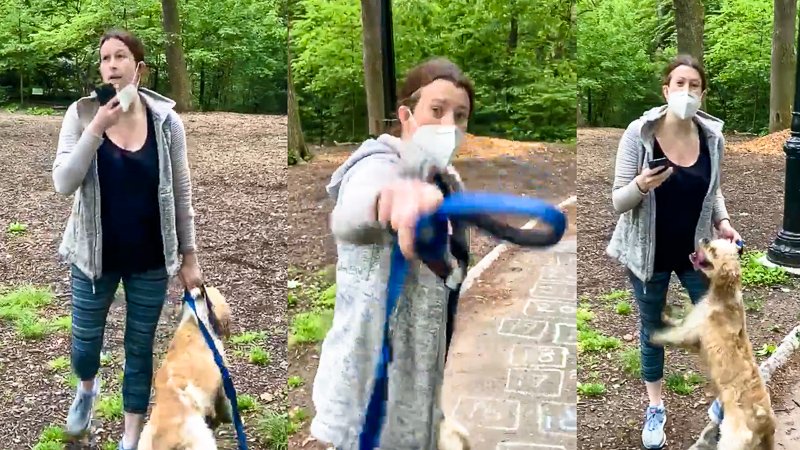White Space weaponized: Karenism(sic) and dueling cellphones
Much of this narrative still has to play out, but birding, animal cruelty, privilege, Central Park, class, culture, all are part of this bit of meme. COVID-19 has wound everyone up in the hotspots. Which Fox News pundit will take the lead on this. Imagine the counternarrative (he was trying to poison my dog!), and the lawyers…
Woman had her dog off leash in violation of the law. Guy in park, birding, asks her to leash her dog. She freaks and makes 911 call saying that she will be telling the cops that she was being threatened as she abuses her dog. Darn those public spaces. Cyberspace and social media got into it and it seems now to be a case of something else.
And it’s RAMBLE (not bramble)
— Melody Cooper (@melodyMcooper) May 25, 2020
Since the end of the Civil Rights Movement, large numbers of black people have made their way into settings previously occupied only by whites, though their reception has been mixed. Overwhelmingly white neighborhoods, schools, workplaces, restaurants, and other public spaces remain. Blacks perceive such settings as “the white space,” which they often consider to be informally “off limits” for people like them.Meanwhile, despite the growth of an enormous black middle class, many whites assume that the natural black space is that destitute and fearsome locality so commonly featured in the public media, including popular books, music and videos, and the TV news—the iconic ghetto. White people typically avoid black space, but black people are required to navigate the white space as a condition of their existence.
In the white space, the anonymous black person’s status is uncertain, and he or she can be subject to the most pejorative regard. For their part, in the interest of civility, most whites who harbor them know to keep such negative thoughts to themselves. When a racial epithet, or the attitude underlying it, is expressed, it tells the black person directly that he or she does not belong.
Darn that intransigence:
On Facebook, Christian Cooper wrote, “Central Park this morning: This woman’s dog is tearing through the plantings in the Ramble.” He described the conversation he says occurred before he began recording with his cell phone:
ME: Ma’am, dogs in the Ramble have to be on the leash at all times. The sign is right there.
HER: The dog runs are closed. He needs his exercise.
ME: All you have to do is take him to the other side of the drive, outside the Ramble, and you can let him run off leash all you want.
HER: It’s too dangerous.
ME: Look, if you’re going to do what you want, I’m going to do what I want, but you’re not going to like it.
HER: What’s that?
ME (to the dog): Come here, puppy!
HER: He won’t come to you.
ME: We’ll see about that…Christian Cooper wrote, “I pull out the dog treats I carry for just for such intransigence. I didn’t even get a chance to toss any treats to the pooch before Karen scrambled to grab the dog.” He said she then yelled at him, “don’t you touch my dog.” Christian Cooper said, “That’s when I started video recording with my iPhone, and when her inner Karen fully emerged and took a dark turn…”
Amy Cooper owes apologies to:
— Nell Scovell (@NellSco) May 26, 2020
1. The man who recorded her and was right
2. All black men
3. All black women
4. Cocker spaniels
5. NYPD for filing phony 911 complaint
6. The #believewomen movement
7. NYC Parks dept for breaking leash rules
8. Her employer #FranklinTempleton
Imagine this
— Don Winslow (@donwinslow) May 26, 2020
NYPD, responding to Amy Cooper's false police report of a black man threatening her, could have crashed scene, guns drawn, screaming.
In the ensuing chaos Christian Cooper's phone or binoculars could have been mistaken for a gun and NYPD could have shot him dead.
https://twitter.com/allgood_fitz/status/1265128713898754051?ref_src=twsrc%5Etfw







